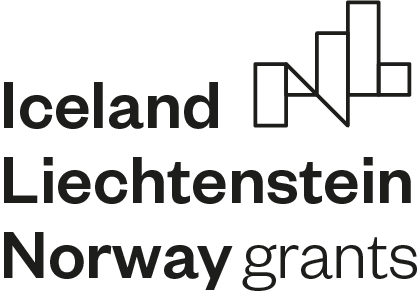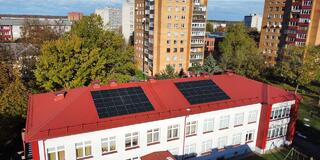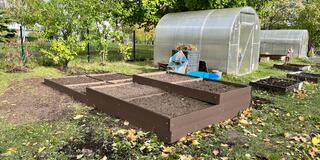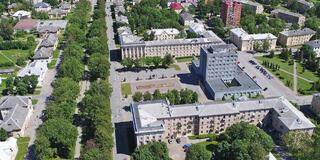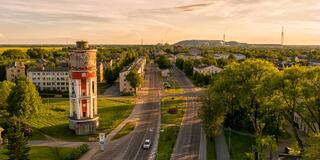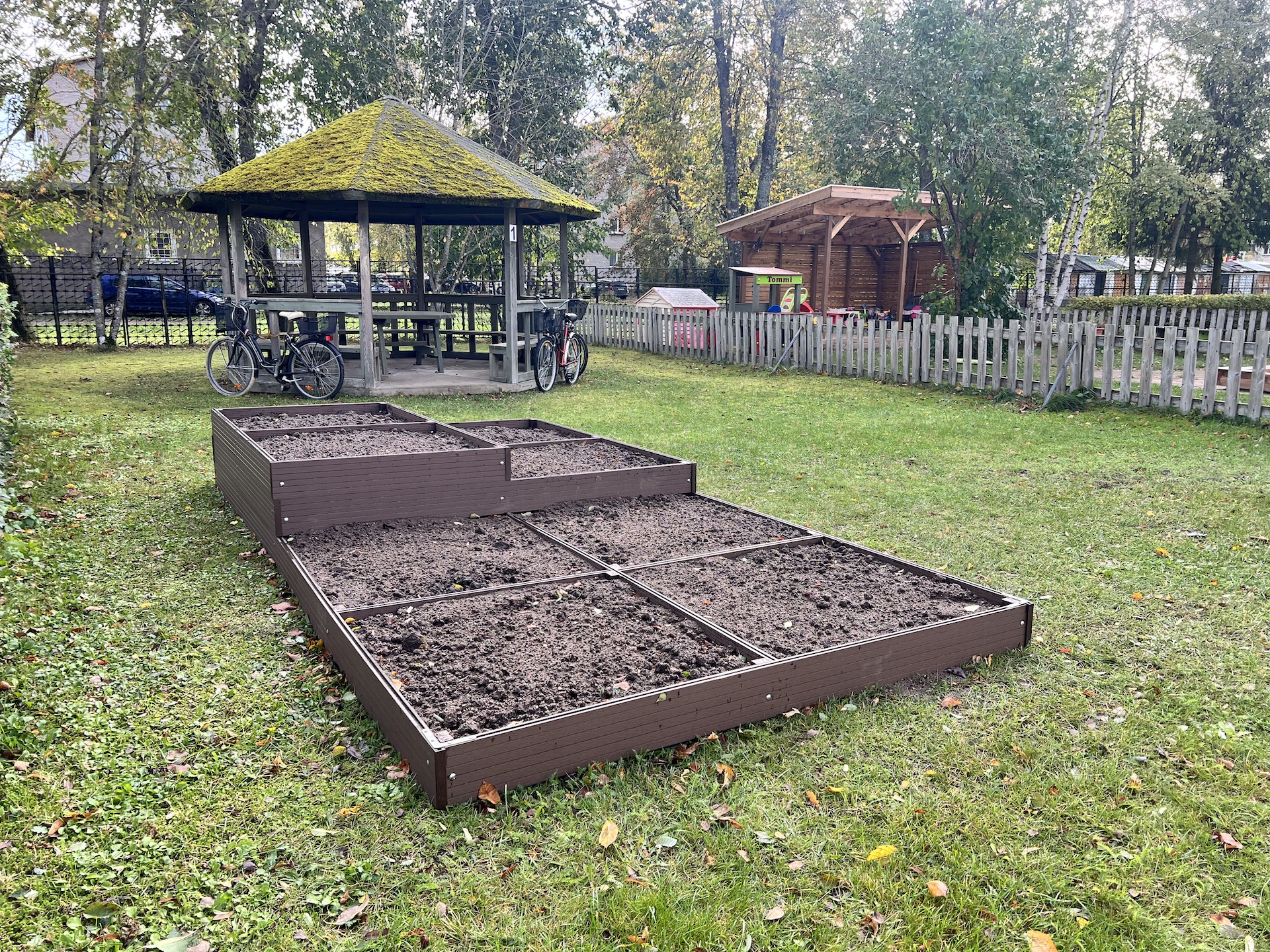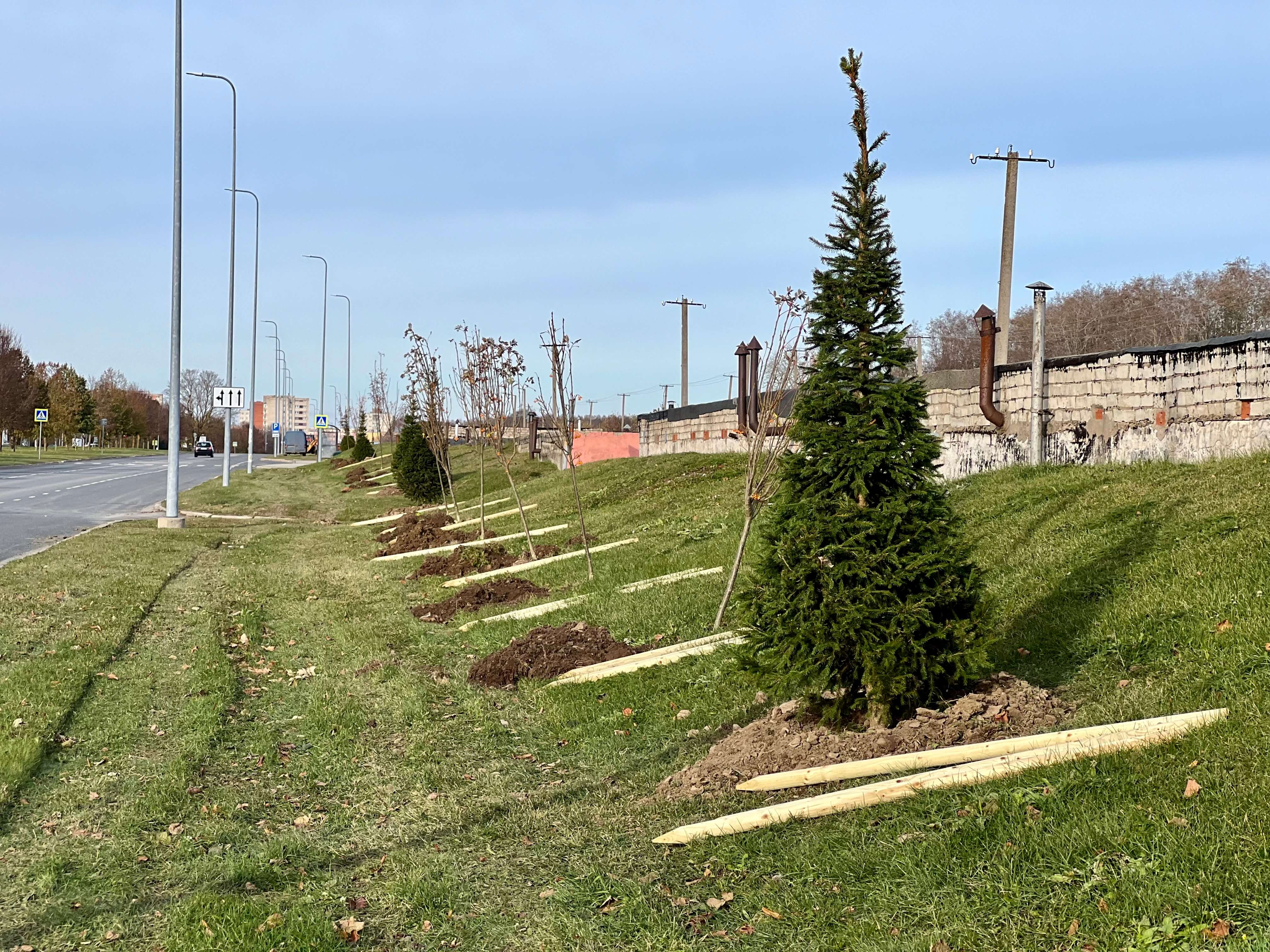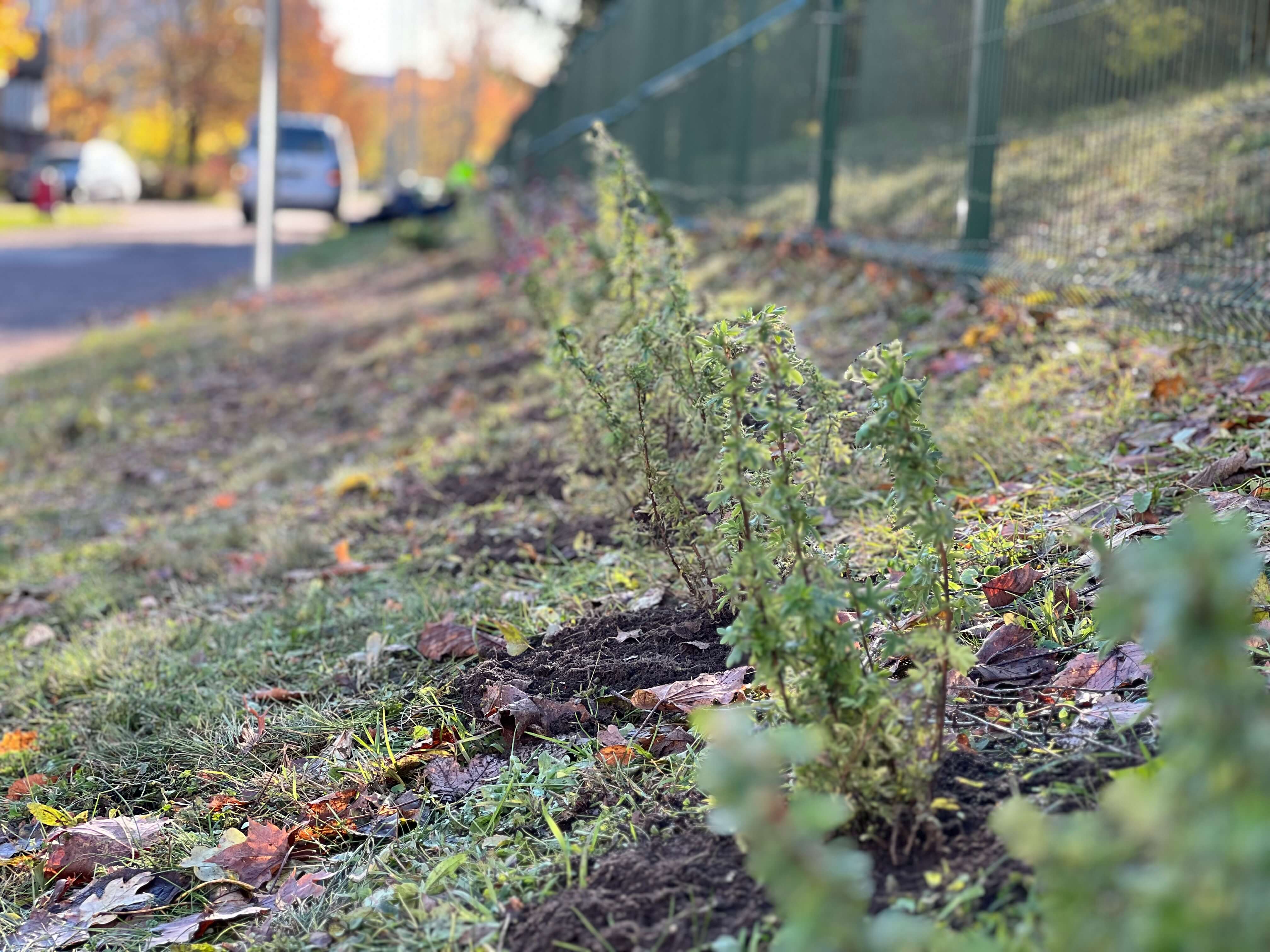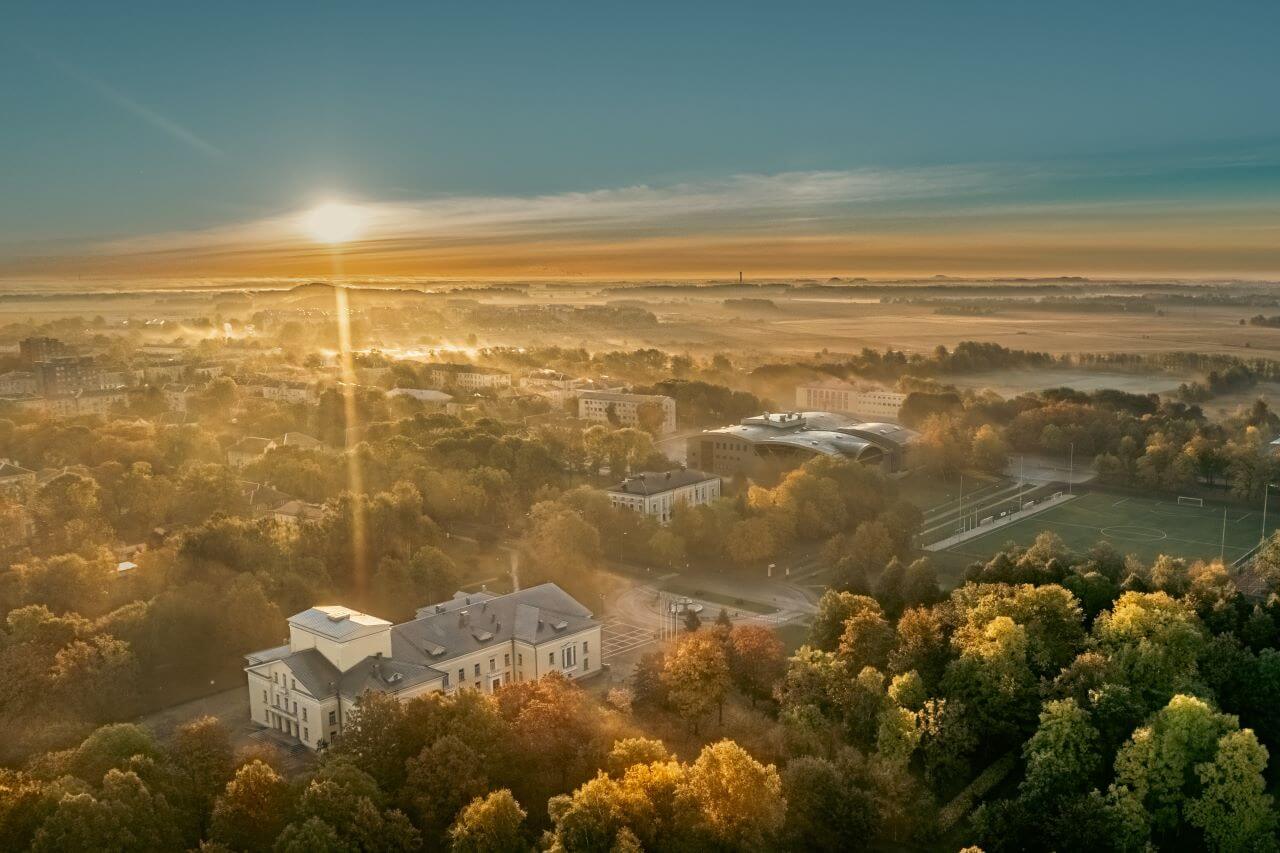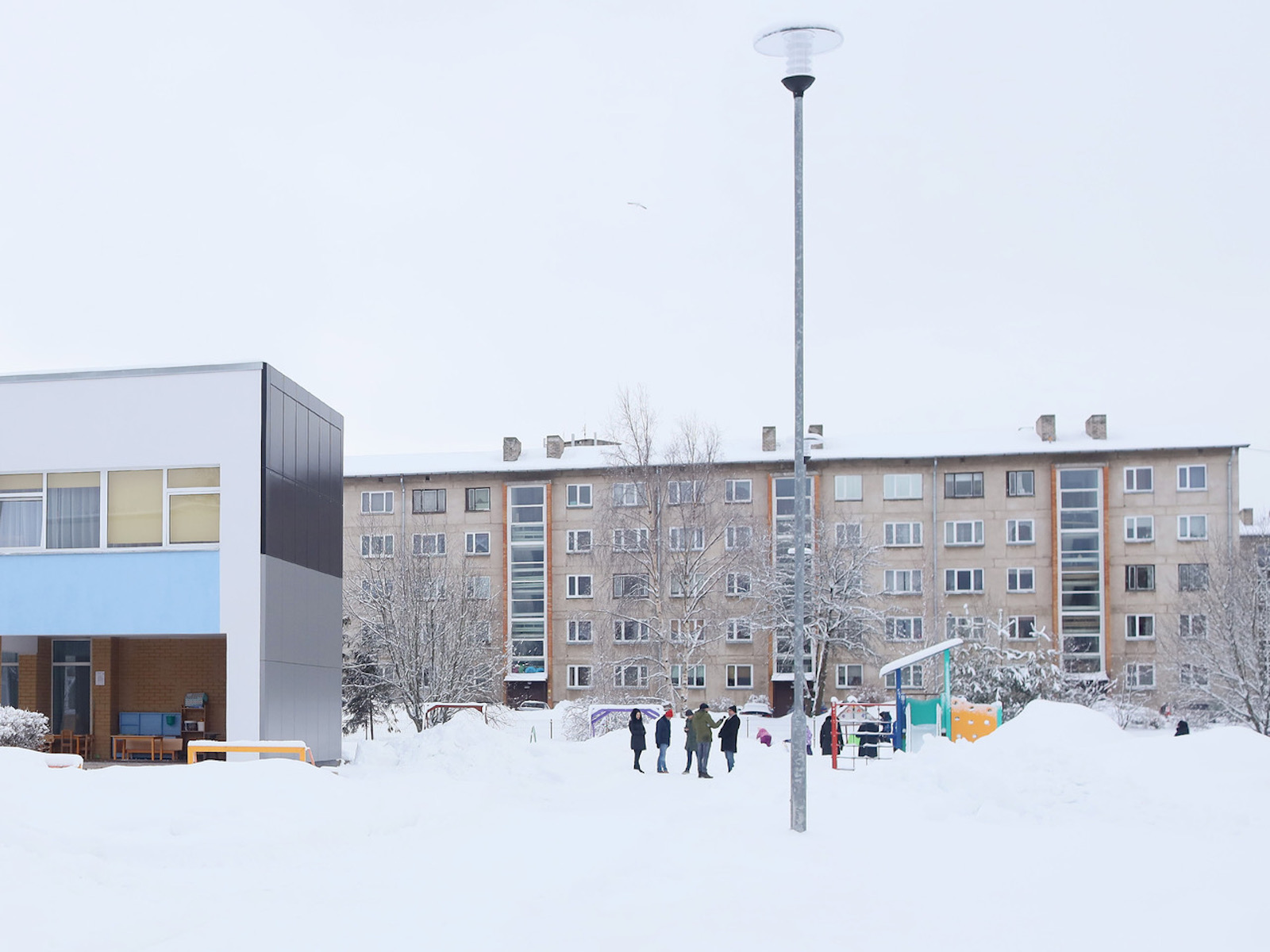
A wall that produces electricity, connected to the socket, could cover the daily food cost of a kindergarten and reduce the parental fee in the future. In addition, the solution is aesthetically beautiful and solves two big issues at once: the facade is repaired, and the previously unused wall surface starts producing electricity. The result is a smaller carbon footprint of the building and protection against high electricity prices.
The project was created in cooperation between Kohtla-Järve city, Tehnopol Science and Business City, and Estonian green growth company Go Verticu, within an innovation competition.
According to Kevin Kuusik, the CEO of Go Vertic, the work done within the pilot project is significant. He encourages everyone to think actively and openly, as the solar electricity-producing wall has the ability to pay off the kindergarten's food costs in the future and reduce the parental fee or cover part of the building's electricity consumption.
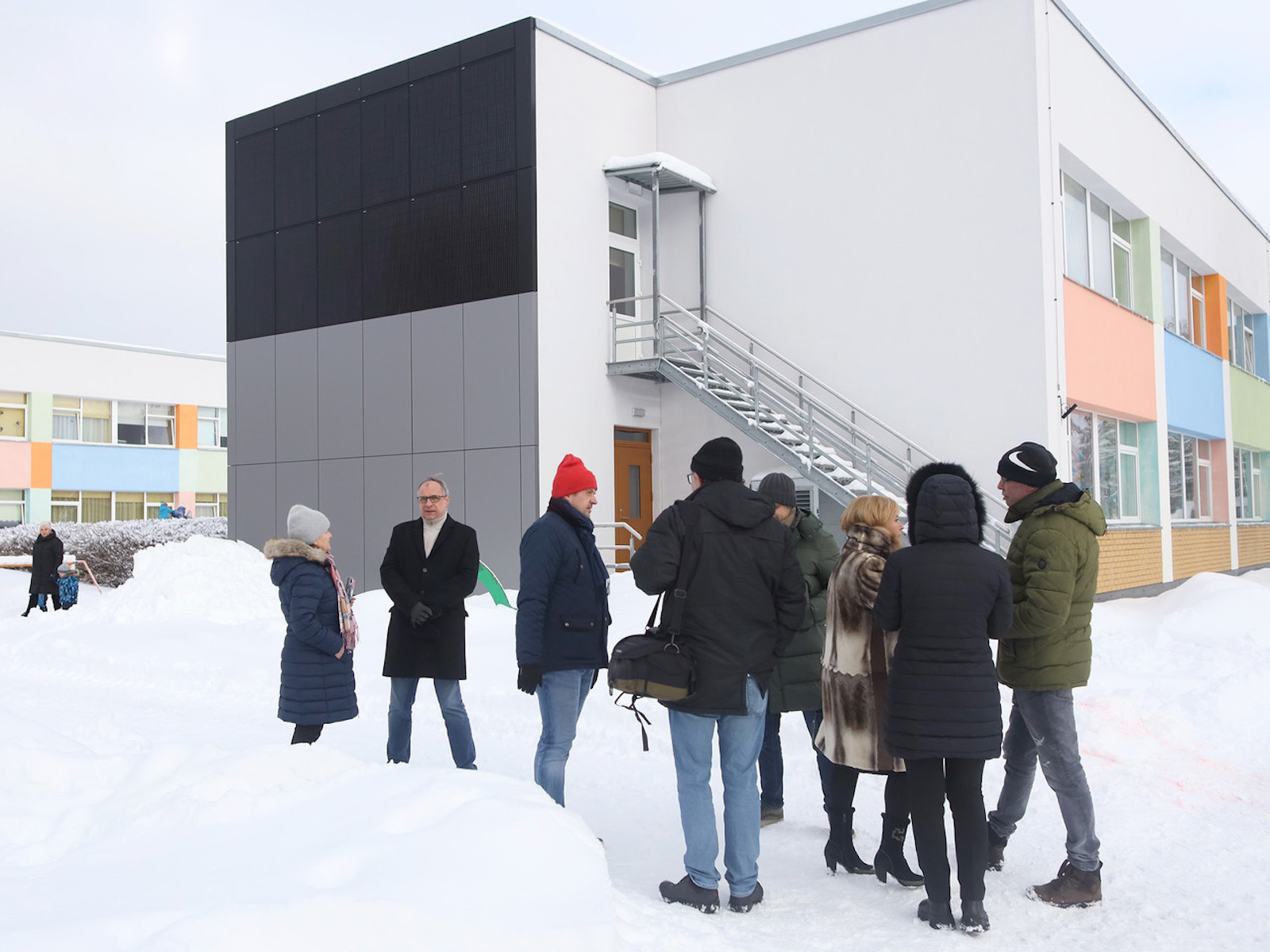 F: Igor Parv
F: Igor ParvAccording to Kuusik, the work done in the pilot project is significant. "If we think about what is possible, then I encourage everyone to actively and openly participate, because based on the example of Karukese kindergarten, I can confirm that a solar panel wall has the capability to pay for the kindergarten's food costs in the future and reduce the parents' daycare fees, which have always been significant topics. Or to cover part of the building's electricity consumption. Everyone can decide for themselves," explained Kuusik.
According to Riina Ivanova, the Chairperson of the Kohtla-Järve City Council, the goal of the innovation competition was to increase cooperation between Kohtla-Järve city and technology companies, and to support the city's ambition to make the urban environment more modern, sustainable, open, and friendly for both residents and visitors.
 F: Igor Parv
F: Igor Parv"In addition, the innovation competition brought innovative smart city solutions, products, and services to Kohtla-Järve. Cooperation with Go Vertical has been pleasant and certainly fulfilled the set goals. We look to the future with optimism," added Ivanova.
The coordinator of the smart city innovation competition in Ida-Virumaa, Olga Kurdovskaja, emphasized that the goal of Tehnopol is to contribute to world-changing innovation and technology entrepreneurship.
"That is precisely why we have established innovation funds to give impetus to ideas that make our surrounding environment better," he said. Kurdovskaja encourages all local governments to launch innovation funds and for entrepreneurs to actively participate in them. Such competitions provide not only financial support but also a great opportunity to reach numerous interest groups."
 F: Igor Parv
F: Igor Parv“Just seetõttu olemegi asutanud innovatsioonifonde, millega anda hoogu ideedele, mis muudavad meid ümbritsevat keskkonda paremaks,” ütles ta. Kurdovskaja julgustab kõiki omavalitsusi innovatsioonifonde käivitama ja ettevõtjaid aktiivselt neist osa võtma. Sellised konkursid annavad lisaks rahalisele toetusele ka hea võimaluse jõuda arvukate huvigruppideni.
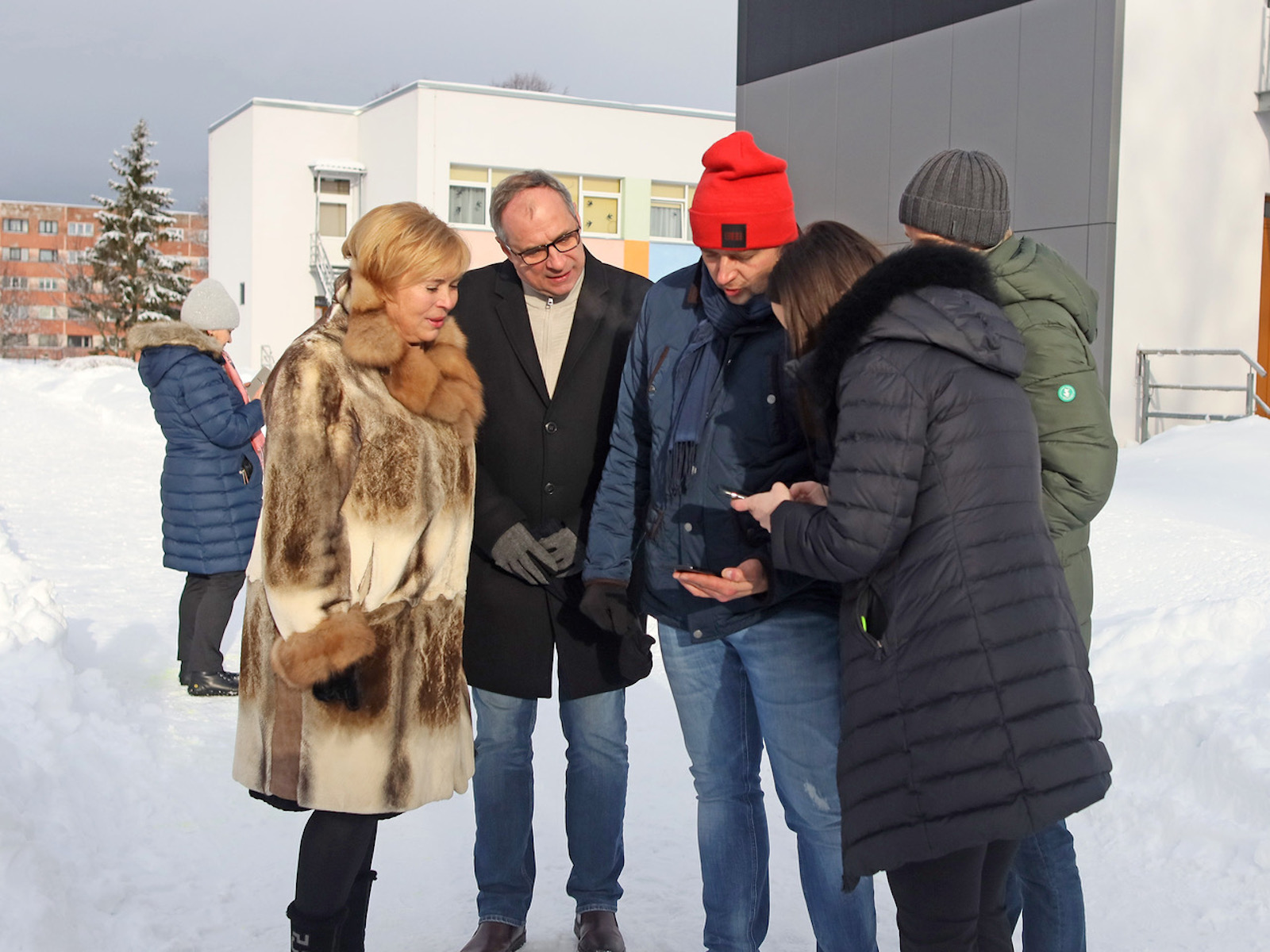 F: Igor Parv
F: Igor ParvRecently, Rohegeenius reported on the wall panels produced by Go Vertic and calculated their cost-effectiveness and payback time.
The Kohtla-Järve Innovation Fund was launched in 2021 with the aim of making the urban environment of Kohtla-Järve more modern, sustainable, and people-friendly. To achieve this, Kohtla-Järve invested 20,000 euros in modern smart city and green technology solutions that promote the environment. The innovation competition was carried out on behalf of the city by the science and business campus Tehnopol. For more information on the Kohtla-Järve Innovation Fund, visit: https://innovatsioonifond.tehnopol.ee/kohtla-jarve/.
SOURCE: Rohegeenius


